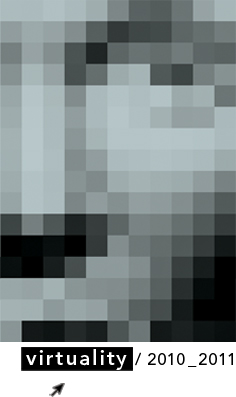Topic Director: James English
Professor of English, Penn
Out of the Latin virtus (“excellence”) and the Middle English virtuell (“effective,” “powerful”) comes our modern word virtuality. Its happy etymological connotations are still in force, as virtuality expresses the utopian hopes of the Information Age. The rise of new media and digital technologies, new feats of prosthetic engineering, and new forms and practices of simulation suggest a brave new world of cyber-living just around the corner, a future where the dynamic power of semblance will utterly redeem the real.
And yet, virtuality, even—indeed especially—when it tempts us with its most alluring promises (virtual youth! virtual sex!), has acquired unmistakably dystopian associations. For many, virtuality represents the loss of what is most precious and authentic in human experience. Should we not resist a future in which romance is reduced to virtual dating and friendship to virtual greeting cards, or when, as educators and humanists, we “meet” with our students in merely virtual classrooms?
Torn between the promise and the threat of these contemporary virtualities, we need to remind ourselves that the virtual itself is nothing new. Humans seem driven, with whatever material and representational technologies lie at hand, to spin out richly imagined alternative worlds, powerful simulations, strategies for rendering the fictive or artificial “effectively” real. Art and literature have always evoked the power of near or not-quite realities. So too has scientific experiment, which depends on the laboratory simulation of real-world conditions. Athletic competition and warfare are unthinkable without the “as if” of training, in the same way that most theatrical performance relies on the anticipatory duplication of rehearsal. Likewise, political governance mobilizes the “imagined community” of a nation into a real social force. Historians explore this inexhaustible archive of virtualities, even while their discipline is itself transformed by new digital means for replicating the past, from virtual reenactment to the virtual museum.
Though the vir of “virile” is also a root of virtuality, the word exceeds the conventionally masculine precinct of computer scientists, engineers, and military training experts. For feminist and queer scholars and those in disability and minority studies, the notion of virtual communities and virtual selves has raised a host of questions about identity, the body, and stigmatization. For philosophers, virtuality poses both ontological and ethical issues: if, when we “go virtual” we remain yoked to our everyday selves, where is our primary address, which is our more valid subjectivity, and what rules or constraints bind us? Related questions arise for legal scholars, as contract law is increasingly strained in transactions conducted by our avatars and as goods and services are exchanged in virtual worlds such as Second Life. How far into such spheres can or should the law extend?
By now, every field is contending with such ambiguities. For specialists in education and pedagogy, the emergence of interactive instructional software and the rise of distance learning have stimulated exciting new research and speculation, while at the same time raising fears about the eventual replacement of human with digital educators. For media critics, cultural theorists, and economists, the rise of a “Nintendo generation” diverted from literature, music, cinema, sport, and even television calls urgently for attention. Is gaming the great new art form of the 21st century, as cinema was of the 20th? Or is it a soul-destroying extension of the routinized, competitive, goal-oriented modern workplace, a symptom of a society that has forgotten the real meaning of “game”? Or can we safely ignore it as a harmless distraction, of no particular consequence either aesthetically or socially? Perhaps the most frustrating aspect of virtuality is that we sense these may not be the right questions to be asking, but it is not yet clear how to formulate better ones.
In its research and public programming, the Penn Humanities Forum will be hosting a wide-ranging conversation on these issues. Scholars, students, and citizens are invited to join in this collective inquiry, the 2010-2011 Forum on Virtuality.
James English, Topic Director
Wendy Steiner, Founding Director
Home
2010—2011



